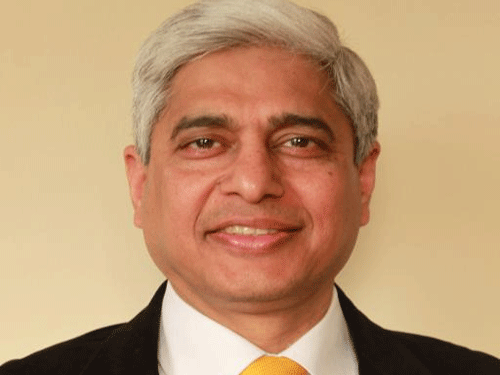
Amid reports about Washington and Islamabad exploring possi-bility of a nuclear deal, India on Thursday stated that any such consideration should factor in the proliferation track record of Pakistan.
India sought to subtly remind the United States that Pakistan’s nuclear programme had been under international scrutiny ever since that country’s top nuclear scientist A Q Khan’s clandestine proliferation network came to light.
“We have seen these reports and it is not for the first time this issue has surfaced. Whosoever is examining that particular dossier should be well aware of Pakistan’s track record in the area of proliferation,” said Vikas Swarup, spokesperson of the Ministry of External Affairs.
He was responding to a question about New Delhi’s reaction to a report in The Washington Post suggesting that the US was negotiating a pact on new limits on nuclear weapons and delivery systems of Pakistan and it might lead to an agreement similar to the Indo-US civil nuclear deal.
The report suggested that the proposal was being discussed between Washington and Islamabad ahead of Pakistan Prime Minister M Nawaz Sharif’s upcoming visit to the US and his meeting with President Barack Obama later this month.
“Pakistan has been asked to consider what are described as brackets,” The Washington Post quoted a source familiar with the talks as saying.
New Delhi on Thursday pointed out that the track records of India and Pakistan on nuclear proliferation could never be compared.
Swarup stated that the Indo-US nuclear deal had been inked, because not only the US, but also the international community was aware of the “impeccable non-proliferation track record” of India.
Clandestine network
A US-led investigation had revealed that the infamous “A Q Khan network” of Pakistan had clandestinely supplied equipment and technology required for making nuclear weapons to at least three countries – Iran, North Korea and Libya.
“When India got this particular deal (with the US), it was on the basis of our own impeccable non-proliferation track record,” said Swarup.
“That is the reason the US gave us the 123 Agreement in 2005 and that is why we got a NSG (Nuclear Supplier Group) waiver in 2008. Pakistan’s track record is completely different. So we hope that it would be taken into account while making any such decision,” he added.